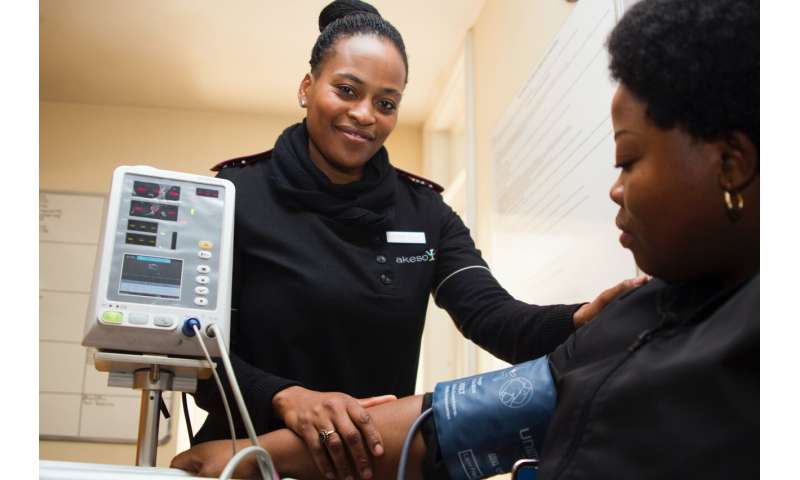
During the 2020 pandemic, patients with systemic autoimmune rheumatic diseases (including lupus) expressed a strong sense of being endangered from both the virus and the redeployment of medical resources. Decreased physician ability to help and increased patient reticence to seek help, created the ‘perfect storm’ for adverse outcomes, according to a study led by the University of Cambridge between March and July 2020.
Systemic autoimmune rheumatic disease (SARD) patients often have complex multi-system disease with potentially organ-damaging and life-threatening manifestations, which are generally poorly understood by non-specialist clinicians. These patients were particularly vulnerable to repercussions from the large-scale re-deployment of rheumatologists to COVID-19 care and resultant cancelations in the regular monitoring required.
This research, led by Melanie Sloan at Cambridge’s Behavioural Science Group, with patients and rheumatologists as collaborators, used a range of methods to explore the impact of the COVID-19 related healthcare changes on SARD patients. A pre-lockdown baseline survey of SARD patients was compared with a follow-up survey in June 2020, complemented by analysis of the LUPUS UK online forum for patients and 28 in-depth patient interviews.
The study found significant detrimental changes in medical care for the majority of patients: over 70% of respondents reported that their appointments, tests and treatments had been canceled more frequently since the pandemic began, and less than 30% felt they had been medically supported for their disease.
There was considerable variation in participant reports of the quality of contact and care. Explicit reassurance of physician accessibility and/or regular physician check-ins, particularly if unsolicited, contributed to feeling ‘cared about’ and medically secure, during a very anxious time for many:
“GP surgery called me a few times just to check up on me and see how I was doing and feeling…Rheumatologist called…info on shielding and see how I was…I was very happy and felt that they cared.” (Patient, 30s)
Although many patients expressed understanding and concern for the pressures the NHS and their doctors were under, at the other—more common—end of the spectrum, there was a widespread sense of abandonment, especially among those whose routine care was abruptly stopped and who could not access assistance in an emergency, despite repeated attempts:
“The system abandoned its existing patients to make room for new ones due to COVID-19. There are no longer people out there whom we can speak to and ask help. Which doctor is there to help me?…Left messages…emails…phonecalls…did not hear anything back…it is very easy to fall into depression.” (Forum member, 40s)
In addition to the reduction in routine and emergency care, many participants actively avoided seeking help due to fears of contracting the virus:
“I have not reached out for medical attention when I’ve needed it as I’m so scared I’ll be sent to hospital and catch coronavirus.” (Patient, 20s)
These COVID-19 fears were often initiated or reinforced by (sometimes excessively) strongly worded risk guidance from the government and physicians:
[Rheumatologist] said, “if you come to the hospital and get it, it’s game over for you.” (Patient, 40s)
“At the start of the pandemic we were very concerned that SARD and lupus patients would be at much greater risk of COVID-19 complications and increased mortality due to their immune-dysfunction and immunosuppressive medications. However, recent data demonstrates only a marginally increased risk, and our study suggests that the health of these patients has been more at risk from the pandemic-related curtailment in their care than from the virus itself. This study corroborates what we as physicians have observed in practice, that unfortunately some of our SARD patients have suffered damage to both their physical and mental health from the reduced care,” says Professor David D’Cruz, lupus specialist at Guy’s hospital and study co-author.
The importance of feeling medically supported was highlighted by its positive correlation (r=0.44) with overall mental wellbeing scores. Those with pre-existing secure medical relationships often expressed lower anxiety and more confidence that support would be forthcoming if required:
“I feel they [GP and rheumatologist] care about me. More so my GP who knows and understands my conditions… When I was in lockdown I knew I could call on him…took away a lot of the stress.” (Patient, 70s)
The move to virtual appointments, whilst necessary in the short-term to reduce risk of infection, is a concern for these patients if continued wide-scale at the expense of regular face-face appointments post-pandemic. SARD patients need to build trusting medical relationships where they feel comfortable reporting their many symptoms, with the previous work from this research team finding that many have been conditioned in healthcare avoidance and under-reporting symptoms due to previous misdiagnoses/dismissive responses.
Tests and examinations are also often required to enable prompt and correct treatment, and multiple participants reported unnecessary or delayed hospitalisations due to not being able to access or be examined by a physician:
“You just want someone to put a hand on it and tell me I’m not over-reacting or under-reacting…they could have got me to hospital earlier [if I’d been seen face to face] but that’s probably my fault as I’m not great at seeking help.” (Patient, 20s)
“Most study participants were sympathetic to the huge pandemic-induced pressure the NHS and their physicians were facing, yet also often felt ‘abandoned’ and that their own care suffered greatly. This study emphasizes the importance of all hospitals/GP surgeries having systems in place to ensure accessible lines of communication for all SARD patients, particularly during times of national and personal health crises,” says Sloan.
Professor Caroline Gordon, Emeritus Professor of Rheumatology, University of Birmingham, and co-author of the study, said: “This study confirmed that many patients suffered from having their appointments canceled or deferred due to the changes in medical care during the first wave of the COVID-19 pandemic when the NHS was managing unprecedented pressures.”
“It was important to reduce the number of patients coming to clinics or GP surgeries to minimize the risk of infection but it was most unfortunate that patients in some places had difficulty obtaining emergency phone advice as well,” continued Professor Gordon, who is also lead author of the British Society of Rheumatology guidelines for the management of systemic lupus erythematosus.
She said, “There is no doubt that these serious and complex conditions need expert care and that virtual clinics are often not sufficient to diagnose what is wrong with the patient. They are prone not only to their disease but are at increased risk of infection and other complications of their disease and medications. Communication between hospital specialists, patients and GPs needs to be maintained with clinics available for those with urgent problems and access to routine tests to reduce complications, as advised in existing clinical guidelines for these diseases.”
Source: Read Full Article


